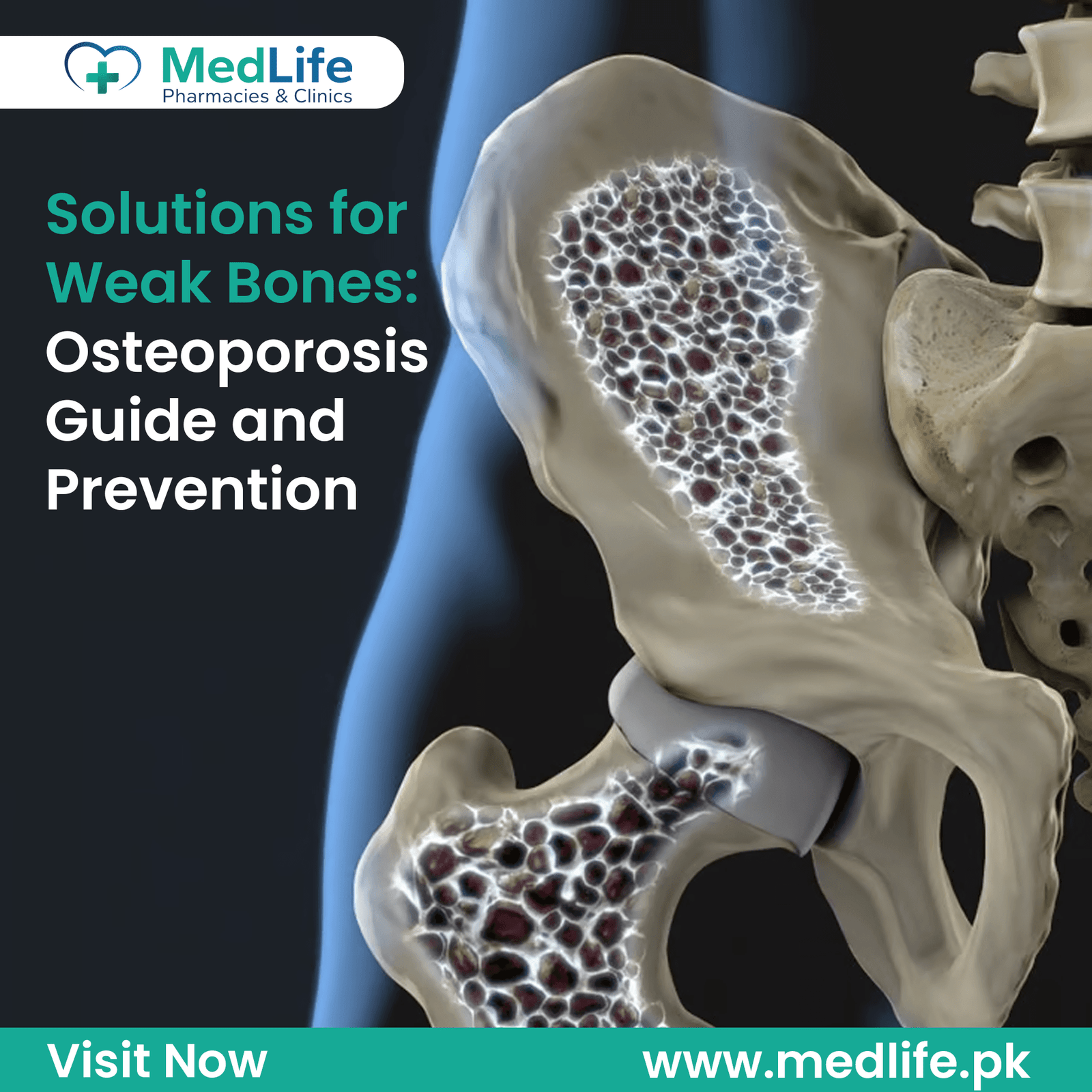Millions of individuals worldwide suffer from osteoporosis, a disorder marked by weak, brittle bones that are easily fractured. Although our bones naturally lose density as we age, there are lifestyle and nutritional decisions that can speed up or slow down this process. To preserve bone health and general quality of life, it is essential to understand how to prevent and treat osteoporosis.
Understanding Osteoporosis:
As a result of the degenerative condition osteoporosis, bones become less dense and are more prone to breaking even from small stress. It frequently occurs silently and shows no symptoms until a bone breaks. Osteoporosis typically affects the wrists, hips, and spine; while it can also affect men, postmenopausal women are more likely to get it.
Key Risk Factors:
Several factors contribute to the development of osteoporosis, including:
- Age: Bone density naturally declines with age.
- Gender: Women are more likely to develop osteoporosis, especially after menopause.
- Family History: A family history of osteoporosis increases risk.
- Body Type: People with small body frames are at higher risk.
- Lifestyle: Lack of physical activity, smoking, and excessive alcohol consumption can contribute to bone loss.
Book Online Appointment With MedLife Clinic
Effective Prevention Strategies:
Preventing osteoporosis involves a combination of dietary changes, physical activity, and lifestyle adjustments. Here are some effective strategies to help maintain strong bones:
Balanced Diet Rich in Calcium and Vitamin D:
For healthy bones, calcium and vitamin D are necessary. Strong bones are formed and maintained by calcium, and calcium absorption is improved by vitamin D.
- Calcium Sources: Sources of calcium include leafy greens like broccoli and kale and dairy items like cheese, milk, and yogurt. Plant-based milks and liquids that have been fortified are also great sources.
- Sources of Vitamin D: In addition to being produced by the body through exposure to sunlight, vitamin D can also be found in fortified foods like orange juice and cereals, as well as fatty fish like salmon and mackerel.
Engage in Weight-Bearing Exercises:
Regular physical activity strengthens bones and improves balance, reducing the risk of falls and fractures.
- Weight-Bearing Exercises: Walking, running, dancing, and trekking are good exercises to keep your bones strong.
- Resistance Training: Incorporate strength training exercises using weights or resistance bands to build muscle and support bone strength.
Avoid Smoking and Limit Alcohol Intake:
Both excessive alcohol intake and smoking can have a detrimental effect on bone health. While heavy drinking can obstruct the body’s capacity to absorb calcium and produce bones, smoking reduces bone density and affects bone production.
- Give Up Smoking: To assist you give up smoking, look for tools and support.
- Moderate Alcohol Consumption: Adhere to the suggested daily intake of one drink for women and two for men.
Ensure Adequate Protein Intake:
Protein is vital for bone health as it is a key component of bone matrix. A balanced diet with sufficient protein helps in maintaining bone strength.
- Protein Sources: Include lean meats, poultry, fish, eggs, legumes, and dairy products in your diet.
Monitor Bone Health Regularly:
Osteoporosis can be early detected and bone health assessed with regular check-ups and bone density testing. To determine bone density, your healthcare professional may suggest tests such as dual-energy X-ray absorptiometry (DEXA).
Medication and supplements:
Medication may be required for those with osteoporosis who are already diagnosed or who are at high risk of developing the condition. Numerous drug kinds can help slow down bone deterioration and lower the chance of fractures. Prior to beginning any medicine or supplement program, always get advice from your healthcare professional.
Lifestyle Changes for Bone Health:
In addition to dietary and exercise changes, certain lifestyle adjustments can further support bone health:
- Fall Prevention: Reduce the risk of falls by ensuring your home is free of tripping hazards, using assistive devices if necessary, and improving home lighting.
- Bone-Healthy Habits: Maintain a healthy weight, avoid excessive caffeine intake, and get regular health check-ups.
Conclusion:
Preventing and managing osteoporosis requires a proactive approach that includes a healthy diet, regular exercise, and lifestyle modifications. By incorporating these strategies into your daily routine, you can significantly reduce your risk of developing osteoporosis and maintain strong, healthy bones. Regular consultations with healthcare professionals and staying informed about the latest research can also help you stay on track with your bone health.
Embracing these solutions and making informed choices about your bone health can lead to a better quality of life and help you stay active and independent as you age.
For More Details Visit Now MedLife Pharmacies & Clinics









